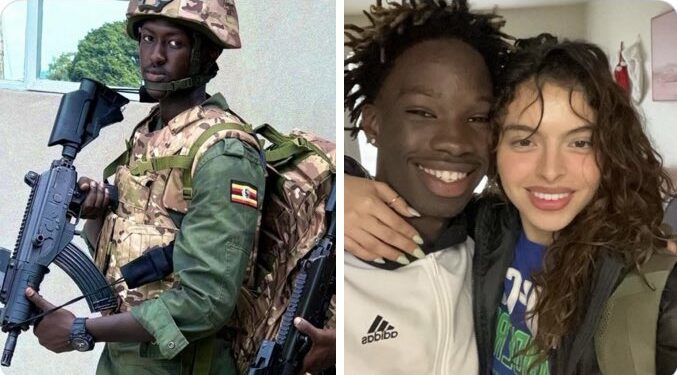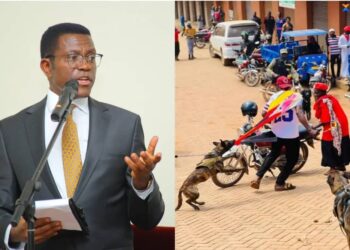Like Father, Like Son: Uganda’s Political Dynasties Spark Generational Rivalry
**Kampala, Uganda – In a digital echo of their fathers’ longstanding feud, Ruhamya Kainerugaba and Solomon Kampala Kyagulanyi have ignited a fresh rivalry that’s captivating Uganda’s social media and political spheres.
The sons of army chief General Muhoozi Kainerugaba and opposition leader Robert Kyagulanyi (Bobi Wine) are now at the center of a “like father, like son” competition, blending personal jabs with broader implications for the nation’s future. The spark came on August 14 when 19-year-old Ruhamya, who recently enlisted as a private in the Uganda People’s Defence Forces despite his privileged background, posted a side-by-side image on X contrasting his military uniform with Solomon’s casual photo alongside his girlfriend in the U.S. Captioned “Who’s this that people are comparing me with?” the post dismissed 20-year-old Solomon as irrelevant, drawing over 1,200 likes and hundreds of replies.
Responses flooded in, with one user identifying “That boy’s Solomon Kampala,” while others mocked Solomon’s expatriate lifestyle as chasing a “green card” or privilege amid Uganda’s struggles. This isn’t mere youthful banter. It mirrors the deep-seated rivalry between their fathers: Muhoozi, seen as President Yoweri Museveni’s heir apparent, has clashed with Bobi Wine, the National Unity Platform (NUP) leader whose protests against the regime have led to arrests and crackdowns.
Ahead of the 2026 elections, Muhoozi’s provocative X posts and Bobi Wine’s calls for change have heightened tensions, with recent reports noting a worsening political climate. Now, their sons’ public spat extends this divide to a new generation, positioning Ruhamya as a disciplined “star boy” patriot and Solomon as a symbol of detached freedom. The impact is palpable.
Social media debates have polarized Uganda’s youth, with defenders urging Solomon to “live his life” and find love without judgment, emphasizing that political paths aren’t inherited. Critics, however, accuse him of enjoying abroad while activists like Eddie Mutwe face perils at home, deepening resentment and distracting from pressing issues like economic hardship and human rights abuses.
Analysts warn this could escalate pre-election violence, fragment opposition unity, and reinforce dynastic politics in a country where 78% of the population is under 35, per recent demographics. Yet, this rivalry offers a teachable moment. Instead of personal attacks, Ruhamya and Solomon could channel their influence toward constructive dialogue.
By focusing on shared goals—youth employment, anti-corruption reforms, and national reconciliation—they might bridge divides. Collaborative initiatives, like joint forums on education or peace-building, would model unity over division, fostering a Uganda where legacies inspire progress, not perpetuate feuds. As one X user noted, “What have you personally done for your country?” The answer could redefine their generation’s role.
Do you have a story in your community or an opinion to share with us: Email us at editorial@watchdoguganda.com














